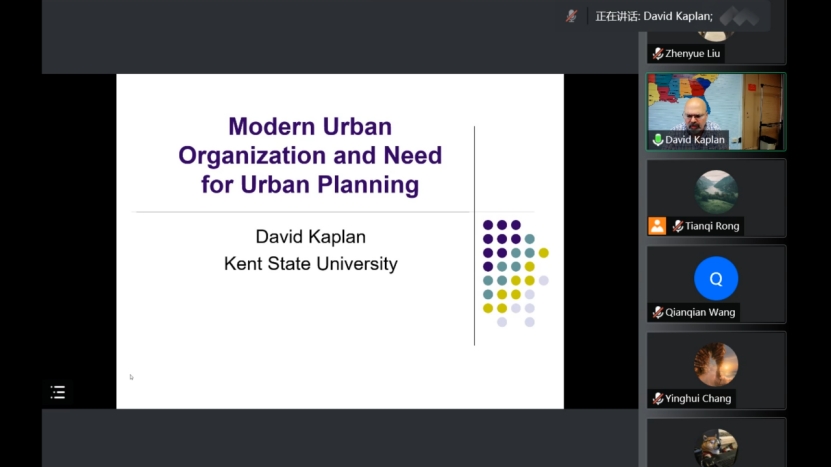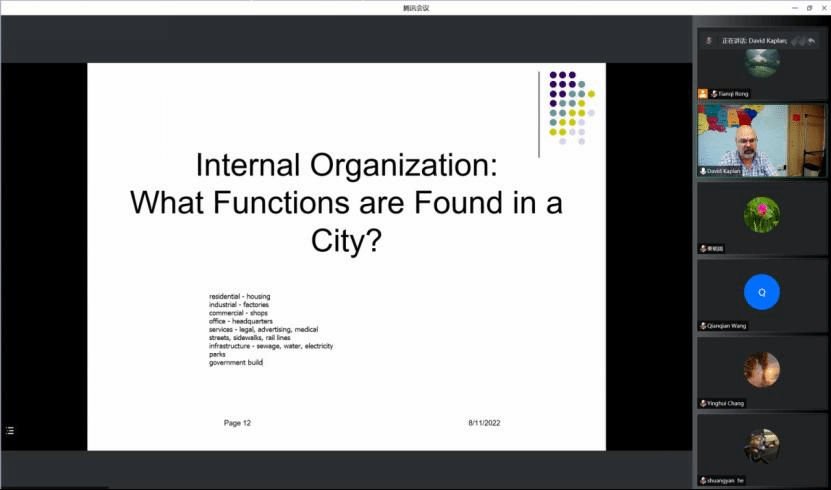From August 9th to 11th, Prof. David Kaplan from Kent State University was invited to make a report with the theme of “Planning, Transportation and Urban Form”. Held by the Henan Intelligence Introduction Base for Ecological Construction and Rural Revitalization along the Yellow River, the School of Geography and Environmental Science of Henan University, the report was part of the Distinguished Overseas Expert Lecture Series.

Starting from his own research direction, Prof. David Kaplan first explained the definition of cities in different regions, the factors in urban formation, what distinguished the ancient city from village/tribal life, and the preconditions of urban formation, mainly including social power and organization, ecological situation and technology. Secondly, he explained the features of ancient cities and the ancient cities in the Middle East. Finally, he summarized the ancient city model and the factors of urban diffusion, mainly including advances in agricultural technology, advances in transportation technology and military conquest.

Prof. David Kaplan also explained the process of world urbanization development. First, he pointed out that world urbanization has increased, then continued with analyzing the urbanization development of different regions, the relationship between urbanization and GDP, and concluded the first section with an elaboration on the urbanization curve. Secondly, he explained where and why cities appeared, mainly including resources, transportation routes, special functions, central locations, and detailed functions of cities (including residential, industrial, commercial, service, transportation, infrastructure, government, education, etc). Finally, he expounded urban planning - urban planning ideologies and methods of improving the urban economy, and showed the collected results from the urban planning in different regions.
Vivid and informative, Prof. David Kaplan’s report provided a good academic platform for the students - arousing the students’ enthusiasm for discussion and expanding their knowledge and perspectives. This report enriches the students’ campus cultural and academic life, creates a change for academic exchanges within and beyond borders, and facilitates students’ future research projects.

 News /
Content
News /
Content


